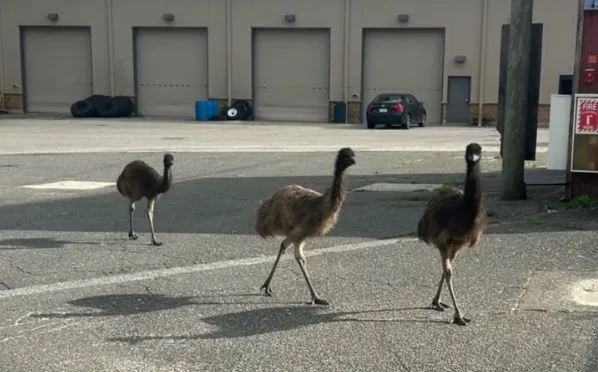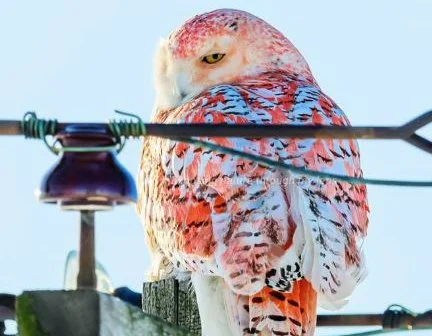Incredible Half-Male, Half-Female Bird Captured on Camera
Amateur ornithologist John Murillo happened upon one of the rarest sights in the birding world: a half female, half male green honeycreeper. The brilliant little bird was spotted at a bird-feeding station in a nature reserve near Manizales, Colombia.
The specimen dons shimmering, aqua-blue and yellow-green plumage, with a clear boundary down the middle. The split-screen coloration is caused by bilateral gynandromorphism, likely the result of a glitch in the cell division that creates an egg, allowing for fertilization by two different sperm.
Murillo pointed out the fantastic find to Hamish Spencer, a zoology professor at New Zealand's University of Otago, who happened to be on holiday in Colombia at the time.
“Many birdwatchers could go their whole lives and not see a bilateral gynandromorph in any species of bird. The phenomenon is extremely rare in birds, I know of no examples from New Zealand ever. “It is very striking, I was very privileged to see it,” Spencer said in a university press release.
Murillo spent the next 21 months watching the bird at the feeding station. “The bird did not behave in any way that was unusual for a Green Honeycreeper, and it vocalized on several occasions,” he wrote in the Journal of Field Ornithology.
As beautiful as this unusual bird is, there is a drawback to being such a rara avis. “The gynandromorph usually waited for the other honeycreepers to leave the feeders before landing to feed itself,” Murillo writes. “In general, it avoided others of its species, and the others also avoided it; it seems unlikely, therefore, that this individual would have had any opportunity to reproduce.”
You can watch eight seconds of the gynandromorph here.
Photo credit: John Murillo / Journal of Field Ornithology







